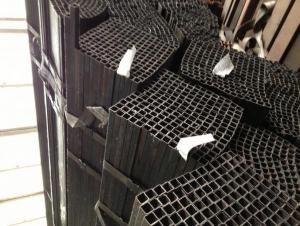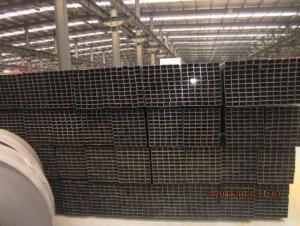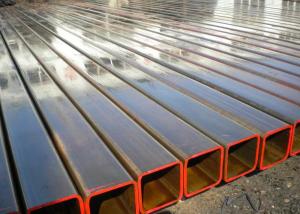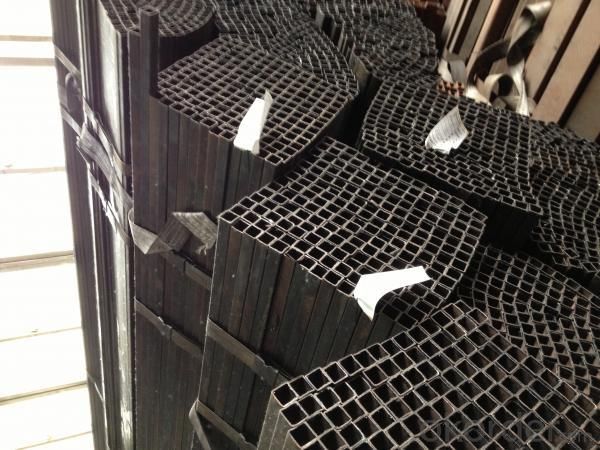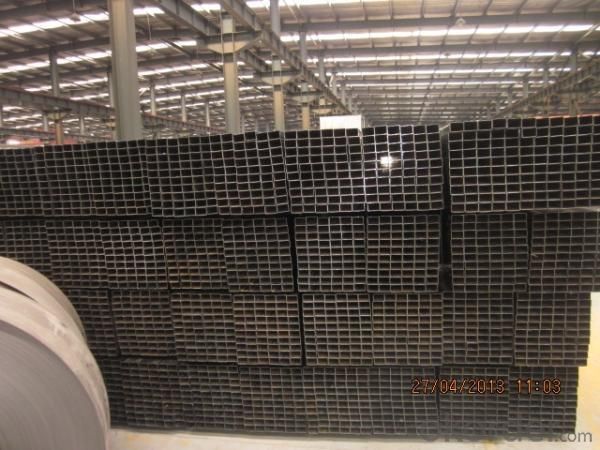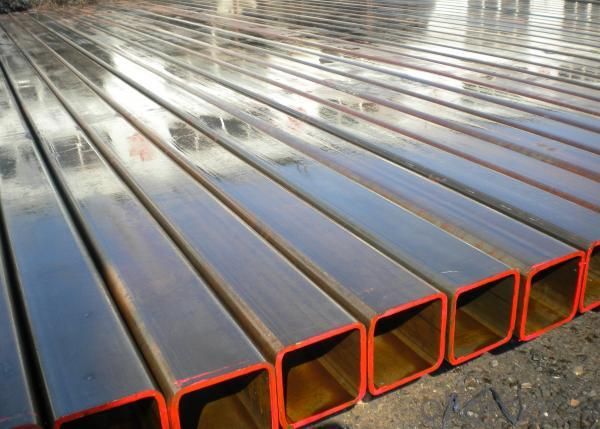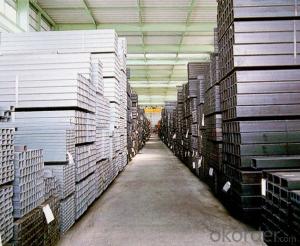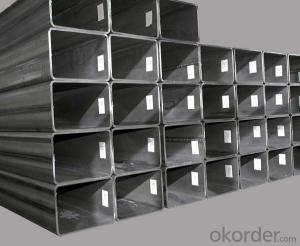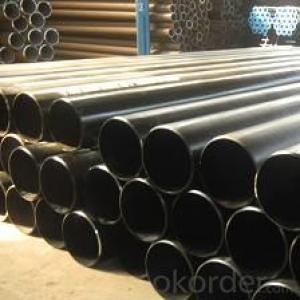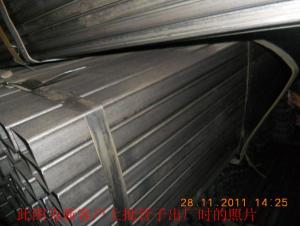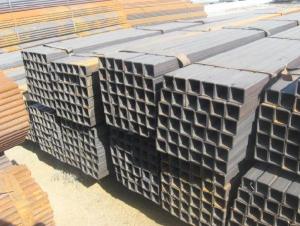High Quality Hollow Section-Square Tubes
- Loading Port:
- China main port
- Payment Terms:
- TT or L/C
- Min Order Qty:
- 5 m.t.
- Supply Capability:
- 1000 m.t./month
OKorder Service Pledge
OKorder Financial Service
You Might Also Like
High Quality Hollow Section-Square Tubes
Product Applications:
It is widely used in building, machine, chemical equipment, automobile industrial, container, it is also applied to agriculture and mine machine.
Product Specifications:
Standards: ASTM A500, GB6728
Grade: ASTM A500: A, B, C; GB6728: Q195, Q215, Q235, Q345
Sizes:
*Remark: Besides below sizes, we also can arrange production based on requirement of customers
Size (mm) | Thickness (mm) |
20×10 | 0.6-1.0 |
25×12 | 0.6-1.0 |
38×19 | 0.6-1.5 |
50×25 | 0.6-1.5 |
50×30 | 1.6-3.0 |
60×40 | 1.5-3.5 |
75×50 | 1.5-4.0 |
80×40 | 1.5-4.0 |
100×50 | 2.0-6.0 |
100×60 | 2.0-6.0 |
100×75 | 2.0-6.0 |
120×60 | 3.0-6.0 |
120×80 | 3.0-6.0 |
125×50 | 3.0-6.0 |
125×75 | 3.0-6.0 |
150×50 | 3.0-6.0 |
150×75 | 3.0-6.0 |
150×100 | 4.0-12 |
160×80 | 4.0-6.0 |
175×100 | 4.0-12 |
200×100 | 4.0-12 |
200×150 | 4.0-12 |
250×150 | 5.0-12 |
300×200 | 5.0-12 |
400×200 | 5.0-12 |
Chemical Composition:
Chemical Requirement | ||||
| Composition % | |||
| Grade A | Grade B | ||
| Heat | Product | Heat | Product |
Element | analysis | analysis | analysis | analysis |
Carbon max | 0.26 | 0.3 | 0.22 | 0.26 |
Manganese max | … | … | 1.4 | 1.45 |
Phosphorus, max | 0.035 | 0.045 | 0.03 | 0.04 |
Sulfur max | 0.035 | 0.045 | 0.02 | 0.03 |
Copper, when copper steel is specified, min | 0.2 | 0.18 | 0.2 | 0.18 |
Where an ellipsis (...)appears in this table, there is no requirement | ||||
For each reduction of 0.01 percentage point below the specified maximum for carton, and increase of 0.06 percentage point above the specified maximum for manganese is permitted, up to a maximum of 1.50% by heat analysis and 1.6% by product analysis | ||||
Mechanical Properties:
Tensile Requirement | ||
| Grade A | Grade B |
Tensile strength, min, psi (Mpa) | 48000 (400) | 70000 (483) |
Yield strength, min, psi (Mpa) | 36000 (250) | 50000 (345) |
Elongation in 2 in. (50.8mm), min, % | 23 | 23 |
GB6728:
Steel Grade | CHEMICAL COMPOSITION | MECHANICAL PROPERTIES | ||||||
C (%) | Si (%) | Mn (%) | P (%) Max | S (%) Max | YS (Mpa) Min | TS (Mpa) Min | El (%) Min | |
Q195 | 0.06-0.012 | 0.3 | 0.25-0.5 | 0.45 | 0.5 | 195 | 315 | 22 |
Q215 | 0.09-0.15 | 0.3 | 0.25-0.55 | 0.45 | 0.5 | 215 | 335 | 22 |
Q235 | 0.12-0.22 | 0.3 | 0.3-0.7 | 0.45 | 0.45 | 235 | 375 | 20 |
Q345 | 0.20 | 0.55 | 1.0-1.6 | 0.45 | 0.45 | 345 | 510 | 21 |
Packaging: Packed in bundles, each bundle with 6-8 steel stripes and 2 nylon strips or one by one Or Nested into Containers
Product Images:
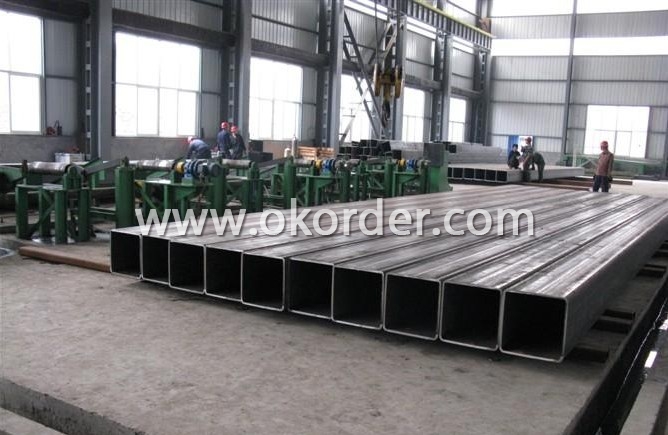
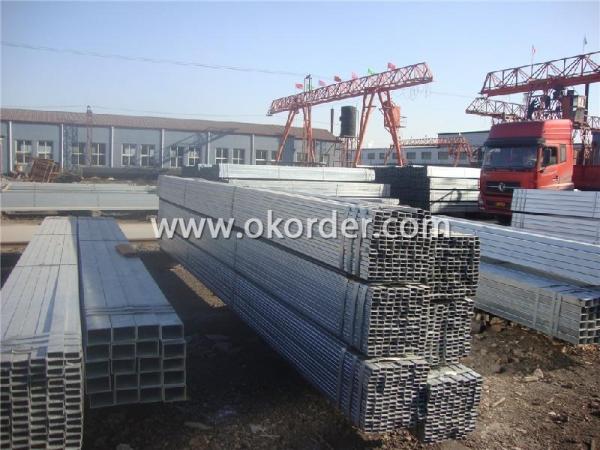
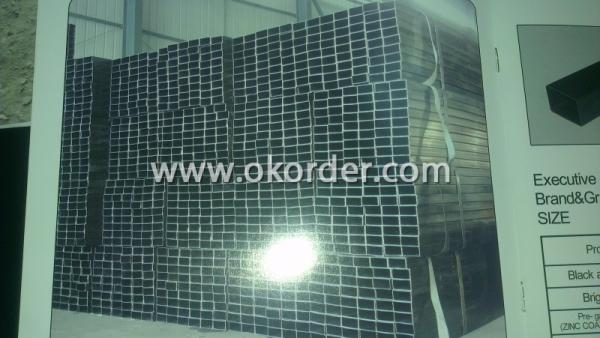
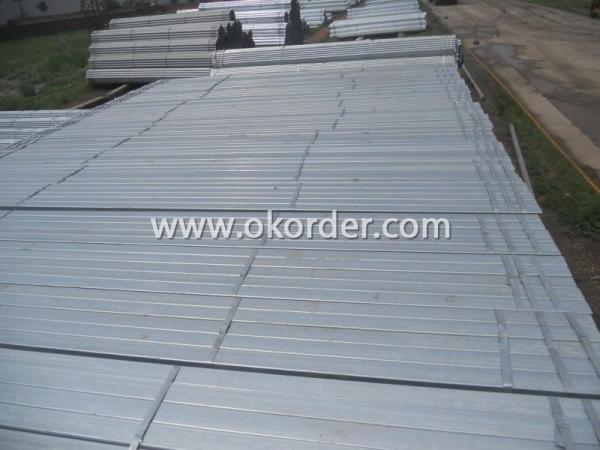
FAQ:
Q1: Why buy Materials & Equipment from OKorder.com?
A1: All products offered byOKorder.com are carefully selected from China's most reliable manufacturing enterprises. Through its ISO certifications, OKorder.com adheres to the highest standards and a commitment to supply chain safety and customer satisfaction.
Q2: How do we guarantee the quality of our products?
A2: We have established an advanced quality management system which conducts strict quality tests at every step, from raw materials to the final product. At the same time, we provide extensive follow-up service assurances as required.
Q3: How soon can we receive the product after purchase?
A3: Within three days of placing an order, we will begin production. The specific shipping date is dependent upon international and government factors, but is typically 7 to 10 workdays.
Q4: What makes stainless steel stainless?
A4: Stainless steel must contain at least 10.5 % chromium. It is this element that reacts with the oxygen in the air to form a complex chrome-oxide surface layer that is invisible but strong enough to prevent further oxygen from "staining" (rusting) the surface. Higher levels of chromium and the addition of other alloying elements such as nickel and molybdenum enhance this surface layer and improve the corrosion resistance of the stainless material.
Q5: Can stainless steel rust?
A5: Stainless does not "rust" as you think of regular steel rusting with a red oxide on the surface that flakes off. If you see red rust it is probably due to some iron particles that have contaminated the surface of the stainless steel and it is these iron particles that are rusting. Look at the source of the rusting and see if you can remove it from the surface.
Q6: What is the difference between galvanized steel and galvalume steel?
A6: Galvanized steel is metallic coated with Zinc in various coating weights. Minimum recommended for painted metal roofs is G90. Galvalume is a zinc and aluminum coated steel that becomes an alloy and is recommended in either painted or bare applications with a minimum coating weight of AZ50. Galvalume has an excellent performance life in bare exposures. Hence if you are using a bare panel use galvalume and if painted use either.
Q7: Is there a difference in thermal conductivity between stainless steel and steel?
A6: Yes. Stainless Steel has a lower thermal conductivity rate than steel; approximately 1/3 to 1/5th depending on the material.
Q8: Is there a difference in electrical conductivity between stainless steel and steel?
A8: Yes. Steel is generally more conductive than stainless steel. Steel has resistivity in the range of 10~20Ωm, while stainless has a resistivity of approximately 60~72Ωm.
- Q: Which is more load-bearing, the same thickness of steel pipe and steel bar?
- The same length, the same pipe diameter, the same material strength is hollow, the ratio of area of steel (solid), and the cyclical and slender radius smaller than the larger, so the longitudinal stability coefficient is smaller, three factors, two factors are weak in steel reinforced, another factor: strength, they are the same, no doubt, steel reinforced bearing less than.
- Q: How are steel pipes tested for quality?
- Steel pipes are tested for quality through various methods such as visual inspection, dimensional measurement, mechanical testing, and non-destructive testing. Visual inspection ensures that there are no surface defects or deformities on the pipes. Dimensional measurement involves checking the pipe's size, thickness, and length to meet the required specifications. Mechanical testing involves subjecting the pipes to stress, pressure, and temperature to assess their strength and durability. Non-destructive testing techniques like ultrasonic, radiographic, or magnetic particle testing are used to detect any internal flaws or defects without damaging the pipes. These comprehensive quality tests ensure that steel pipes meet the necessary standards before they are used in various applications.
- Q: SC15 what does galvanized steel pipe look like?
- DN15 galvanized pipe, nominal diameter of 15mm
- Q: Are the welded and galvanized tubes the same weight?
- The same specifications of welded pipe and galvanized pipe weight is not the same, the general welding tube weight, galvanized pipe light.
- Q: Are steel pipes suitable for HVAC systems?
- Yes, steel pipes are suitable for HVAC systems. They are commonly used in HVAC installations due to their durability, strength, and resistance to high temperatures and pressures. Steel pipes also provide excellent corrosion resistance, making them ideal for long-term use in heating, ventilation, and air conditioning systems.
- Q: How do steel pipes handle seismic expansion joints?
- Steel pipes handle seismic expansion joints by incorporating flexible joints or bellows in the pipeline system. These flexible joints are designed to absorb and accommodate the movement caused by seismic activity, allowing the steel pipes to expand and contract without causing damage or failure to the overall pipeline system.
- Q: How are steel pipes used in the manufacturing of renewable energy systems?
- Steel pipes are extensively used in the manufacturing of renewable energy systems for various purposes. They are commonly used as structural components, providing strength and stability to wind turbines, solar panel supports, and hydroelectric power systems. Steel pipes are also utilized for transporting fluids such as water, steam, or gases in energy generation processes. Furthermore, they are essential in the construction of geothermal energy systems, where they are employed to create underground heat exchangers and piping networks. Overall, steel pipes play a crucial role in the efficient and reliable functioning of renewable energy systems.
- Q: Can steel pipes be used for underground compressed air pipelines?
- Indeed, underground compressed air pipelines can utilize steel pipes. The strength and durability of steel pipes make them a popular choice for subterranean pipelines. They possess the capacity to endure high pressure and withstand corrosion and other environmental elements. Moreover, steel pipes are renowned for their extended lifespan, rendering them a dependable option for compressed air pipelines. Nevertheless, it is crucial to guarantee the adequate coating and protection of the steel pipes to avert any potential corrosion concerns. Furthermore, the proper installation and maintenance of these pipelines are vital to ensure their efficiency and safety.
- Q: What are steel pipes made of?
- Steel pipes are primarily made of an alloy of iron and carbon, known as steel.
- Q: What are the future trends in steel pipe manufacturing?
- Some future trends in steel pipe manufacturing include the adoption of advanced technologies such as automation and robotics, the development of high-performance and sustainable materials, the implementation of efficient and eco-friendly production processes, and the integration of digitalization and data analytics for improved quality control and supply chain management. Additionally, there is a growing focus on the development of specialized pipes for specific industries such as oil and gas, construction, and automotive, as well as an increased emphasis on product customization and tailored solutions to meet the evolving needs of customers.
1. Manufacturer Overview
| Location | Hebei, China |
| Year Established | 1988 |
| Annual Output Value | Above One Hundred Million RMB |
| Main Markets | Main land; Southeast Asia; Middle East; Africa |
| Company Certifications | ISO 9002:2010;API 5L |
2. Manufacturer Certificates
| a) Certification Name | |
| Range | |
| Reference | |
| Validity Period |
3. Manufacturer Capability
| a) Trade Capacity | |
| Nearest Port | Tianjin |
| Export Percentage | 30%-50% |
| No.of Employees in Trade Department | 201-500 People |
| Language Spoken: | English; Chinese |
| b) Factory Information | |
| Factory Size: | 50,000 square meters |
| No. of Production Lines | Above 15 |
| Contract Manufacturing | Meicai Metal Trading Co.Ltd |
| Product Price Range | Average |
Send your message to us
High Quality Hollow Section-Square Tubes
- Loading Port:
- China main port
- Payment Terms:
- TT or L/C
- Min Order Qty:
- 5 m.t.
- Supply Capability:
- 1000 m.t./month
OKorder Service Pledge
OKorder Financial Service
Similar products
Hot products
Hot Searches
Related keywords
